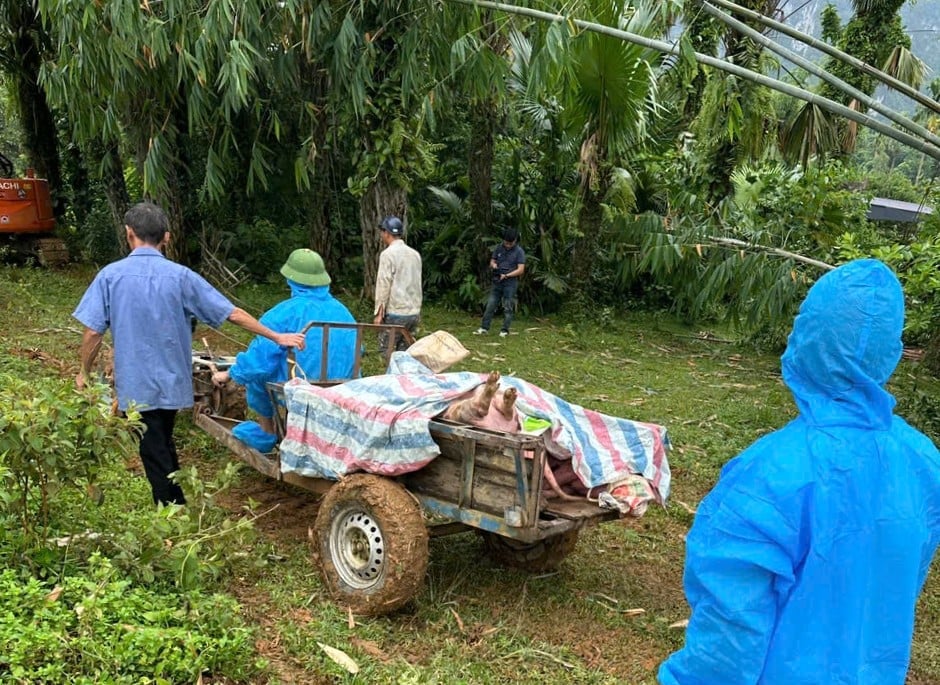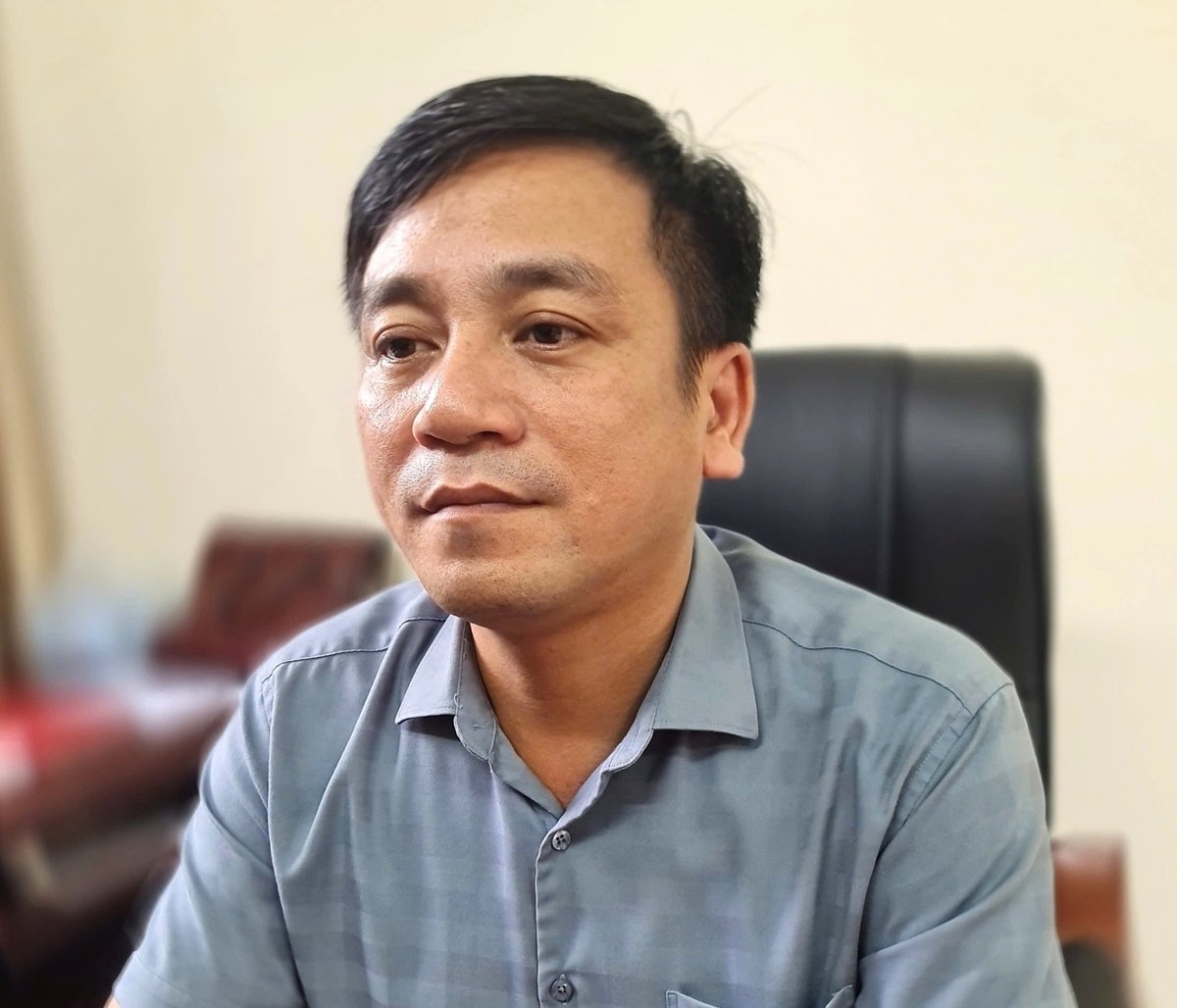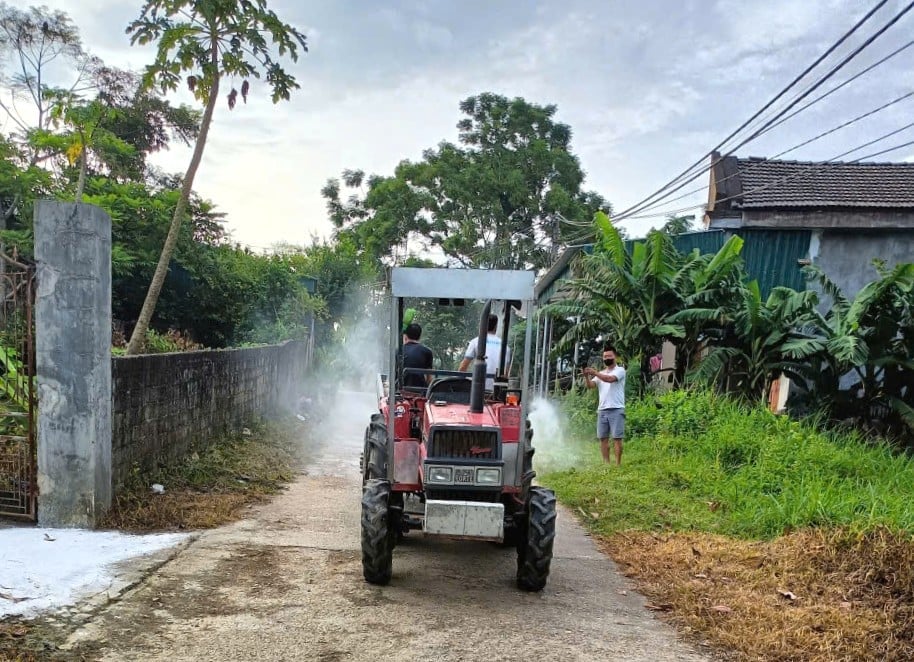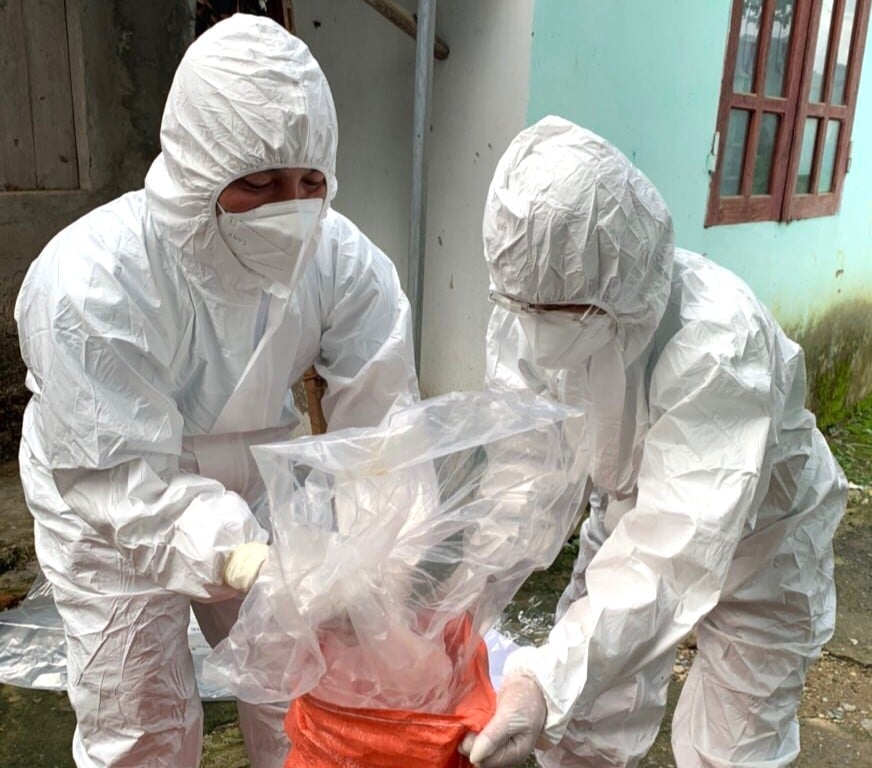November 15, 2025 | 13:53 GMT +7
November 15, 2025 | 13:53 GMT +7
Hotline: 0913.378.918
November 15, 2025 | 13:53 GMT +7
Hotline: 0913.378.918
Vietnam Agriculture and Nature News recently had an interview with Trinh Van Binh, Deputy Director of Tuyen Quang Department of Agriculture and Environment, regarding the province’s efforts in the prevention and control work against African swine fever (ASF).
As a locality where African swine fever appeared early, how much damage has Tuyen Quang province suffered so far, and what do you think are the main causes of this situation?
As of August 19, Tuyen Quang province has recorded over 74,200 pigs (nearly 5% of the total herd) infected with African swine fever, forcing them to be destroyed. More than 7,300 households in 1,396 villages of 114 communes suffered a total loss of over 3,900 tons of meat. The disease is spreading rapidly in communes with large herds, causing pigs to die in a short time. Along with complicated developments of the weather condition, the risk of new livestock diseases breaking out on a large scale may continue to be very high.

African swine fever outbreaks have severely affected livestock farmers in Tuyen Quang. Photo: Dao Thanh.
The main reason is that livestock farming in the province is still small-scale and scattered, making it difficult to have firm control of disease development. Awareness of African swine fever prevention and control among some farmers remains limited. When pigs get sick or die, people do not report to the authorities and specialized agencies, but instead sell them off or throw the carcasses into the environment, which hastens the spread of disease.
The transportation and trading of pigs and pig products still show certain complications, making small-scale farmers more vulnerable to African swine fever. Local authorities also struggle with slaughter control because slaughter activities in the area are mostly done on a small scale.

According to Trinh Van Binh, Deputy Director of Tuyen Quang Department of Agriculture and Environment, the province’s main motto against African swine fever is "wherever the epidemic is, there are veterinary staff". Photo: Dao Thanh.
As the strong outbreak of the epidemic severely affects livestock farmers, what solutions have the authorities at all levels of Tuyen Quang province implemented to support livestock farmers and minimize damage?
As soon as the first outbreaks of African swine fever appeared, Tuyen Quang Department of Agriculture and Environment directed the Sub-Department of Livestock Production, Animal Health, and Fisheries to go to the facilities to collect samples for verification, and at the same time, guide the locality to deploy epidemic prevention and control measures.
The Department establishes working groups and assigns staff to closely monitor the grassroots levels. The province’s agriculture and environment sector also issues advisories to local authorities in a prompt manner. The goal is to synchronously and drastically implement measures in accordance with the provisions of the Law on Veterinary Medicine, the direction of the Government, the Ministry of Agriculture and Environment, as well as the Provincial People's Committee.
Tuyen Quang Department of Agriculture and Environment has established 41 inspection and support teams in concentrated livestock farming communes, coordinating with farmers under the motto " Wherever the epidemic is, there are veterinary staff".
It is known that through actual inspections of the epidemic situation in localities, many localities are able to minimize the spread of disease and effectively have it under control. In your opinion, what are the valuable lessons learned?
Let’s look at the examples of Tan Thanh and Phu Luong. Many villages in these two communes are not necessarily the largest livestock farming areas in the province, but their sharpness and quick thinking are praiseworthy. When they heard about the African swine fever epidemic, while waiting for veterinary staff and government support, they proactively spent money to buy disinfectants and lime powder to clean the barns and village roads. The outbreak was thus delayed, and the damage was minimal.

Localities and livestock farms that have done a good job of disease prevention, veterinary hygiene, and safe livestock farming represent Tuyen Quang’s bright spots in the ASF prevention and control work. Photo: Dao Thanh.
From this, we can draw some important solutions:
Firstly, the earlier the disease is detected, the less impact it will have on the pig herd.
Secondly, it is necessary to carefully clean, disinfect, and sterilize the farming area. These activities must be implemented simultaneously in the pig-raising community and regularly maintained. Vehicles and people entering and leaving residential areas should also closely follow the disease safety procedures.
Thirdly, when there are sick or dead pigs, specialized agencies must take samples for testing and immediately destroy them according to the correct procedure, even if the test results are not yet available. Fourthly, when a disease outbreak occurs, the entire political system must be mobilized to take drastic action.
Fifthly, information dissemination should be promoted to raise awareness among farmers, help them understand the disease correctly without any confusion. Lastly, farm biosecurity and proactive ASF prevention early and from afar must be considered mandatory solutions, the keys to protecting the pig herd.

African swine fever prevention and control requires the strong involvement of the entire political system to achieve efficiency. Photo: Dao Thanh.
What recommendations and directions will you give to livestock farmers in the coming time, so that the livestock industry of Tuyen Quang province can develop sustainably?
In my opinion, for the livestock industry to develop sustainably in the future, local authorities need to consider preventing and controlling African swine fever in particular and diseases in general as one of the key tasks while involving the entire political system.
In the process of preventing and controlling livestock diseases, all parties must strictly implement the "5 no’s" principle: No concealment of disease outbreaks; no transportation of pigs out of the epidemic area; no slaughter of infected pigs; no consumption of sick pigs; no discard of pig carcasses into the environment.
Thank you, sir!
Translated by Samuel Pham
/2025/11/14/1144-0-nongnghiep-231139.jpg)
(VAN) Ban Bo commune (Lai Chau province), located in the buffer zone of Hoang Lien National Park, always pays attention to communication to ensure local residents comply with legal regulations on forest management and protection.

(VAN) The Mekong Delta is shifting toward circular and low-emission cultivation to protect coconut yields, quality, and competitiveness in global markets.

(VAN) From the love for their homeland, young people in Moc Chau established a cooperative, bringing the enthusiasm of the Youth Union into developing modern and sustainable agriculture.
/2025/11/15/1235-1-100331_814.jpg)
(VAN) Over three decades of partnership, WWF-Viet Nam has aligned itself with the 80-year journey toward sustainable development of the Ministry of Agriculture and Environment, continuing the aspiration to preserve nature.
/2025/11/14/1450-1-144946_705.jpg)
(VAN) Connection and experience-sharing activities jointly implemented by ALiSEA have contributed to spreading a spirit of cooperation and promoting the development of agroecology.

(VAN) The Food Waste Recycling Handbook, launched in Ho Chi Minh City helps the community reduce waste, protect the environment, and promote a green lifestyle.

(VAN) The activities under the model help reduce disaster risks while encouraging children’s participation in climate-change adaptation and environmental protection.